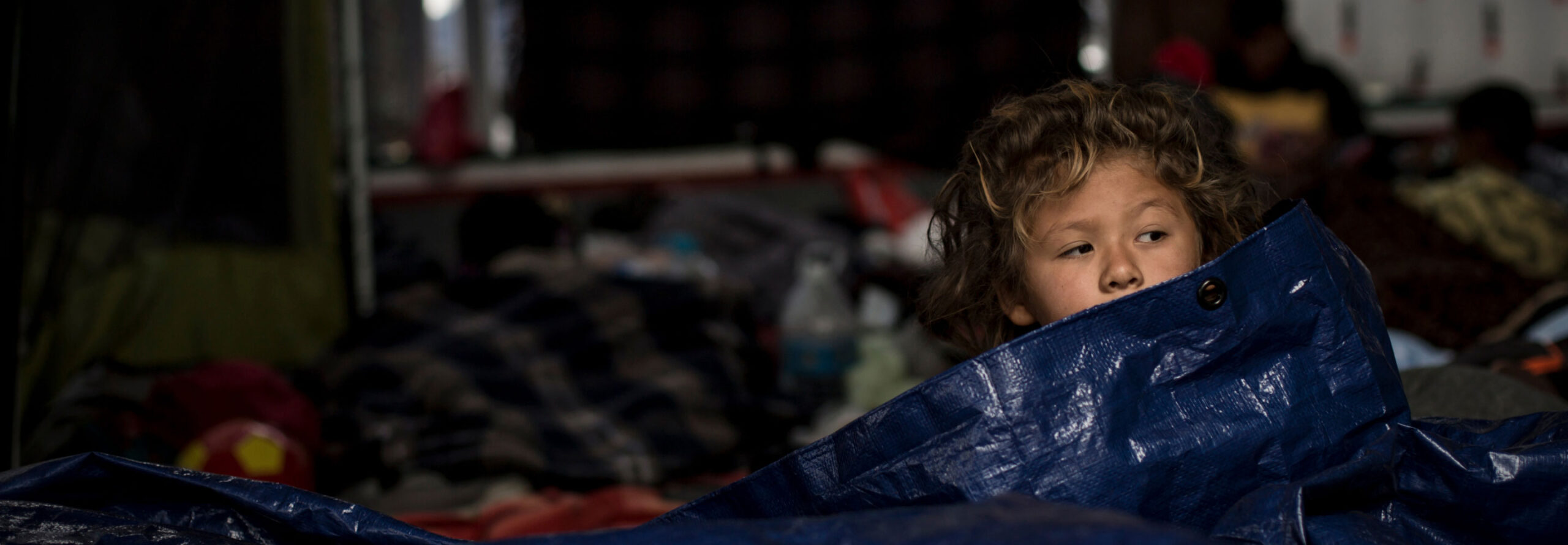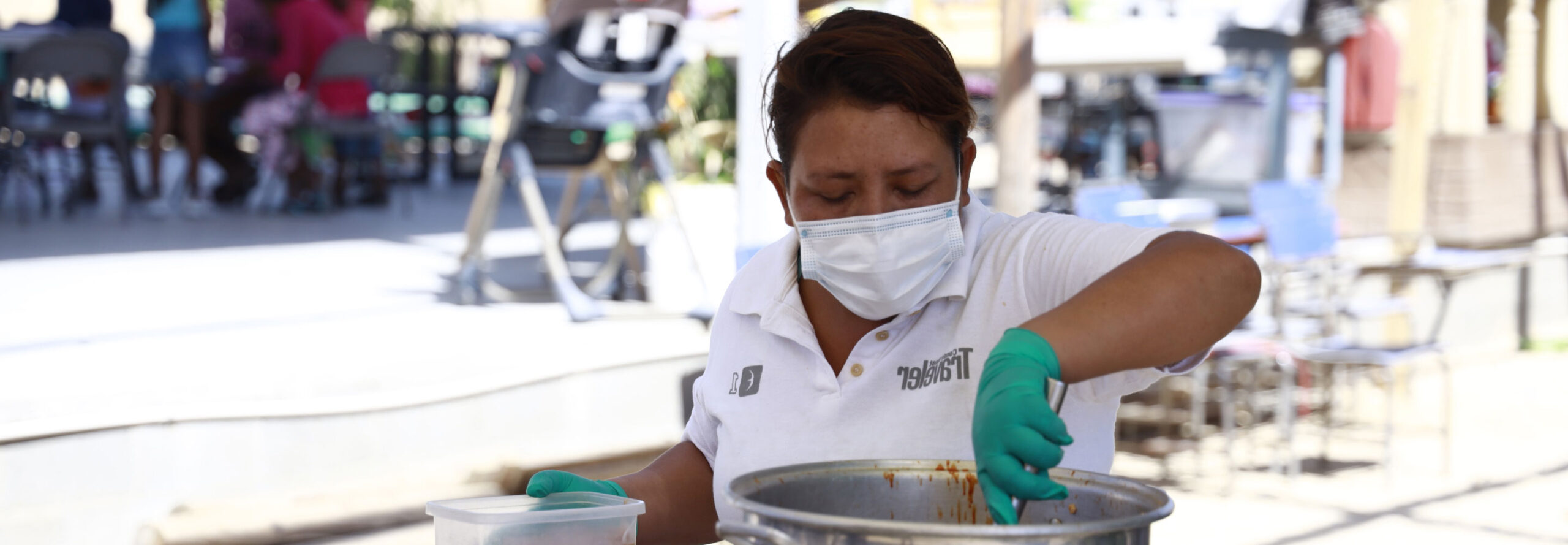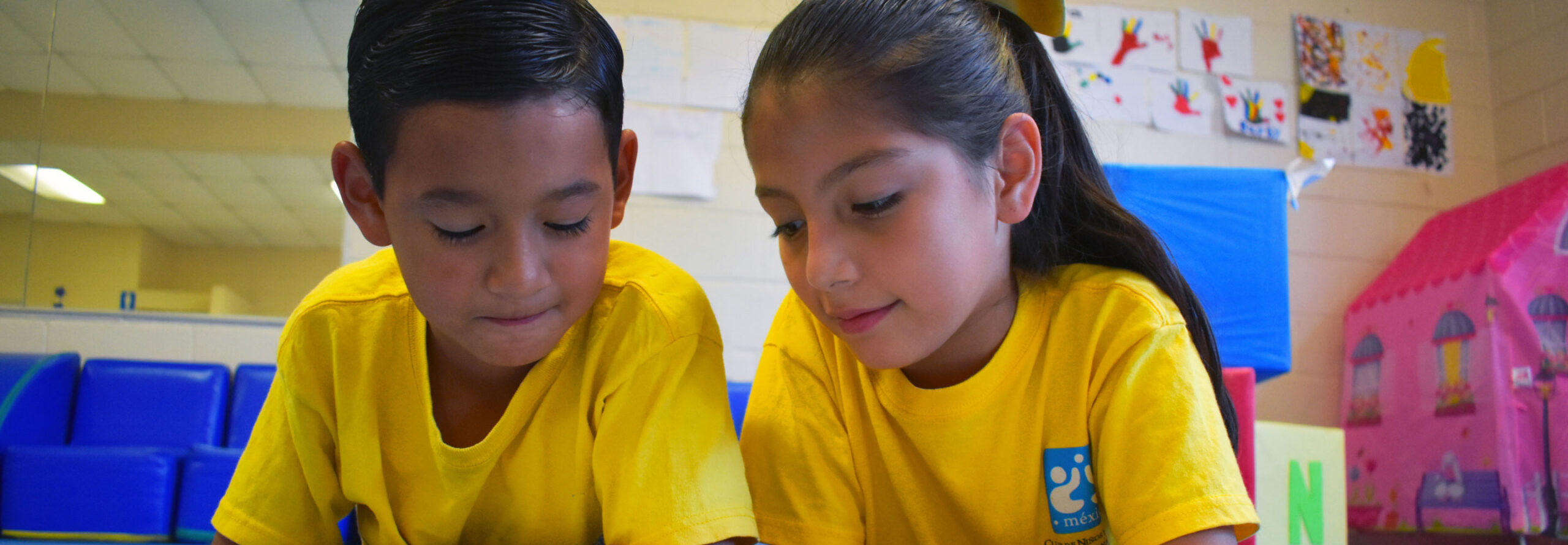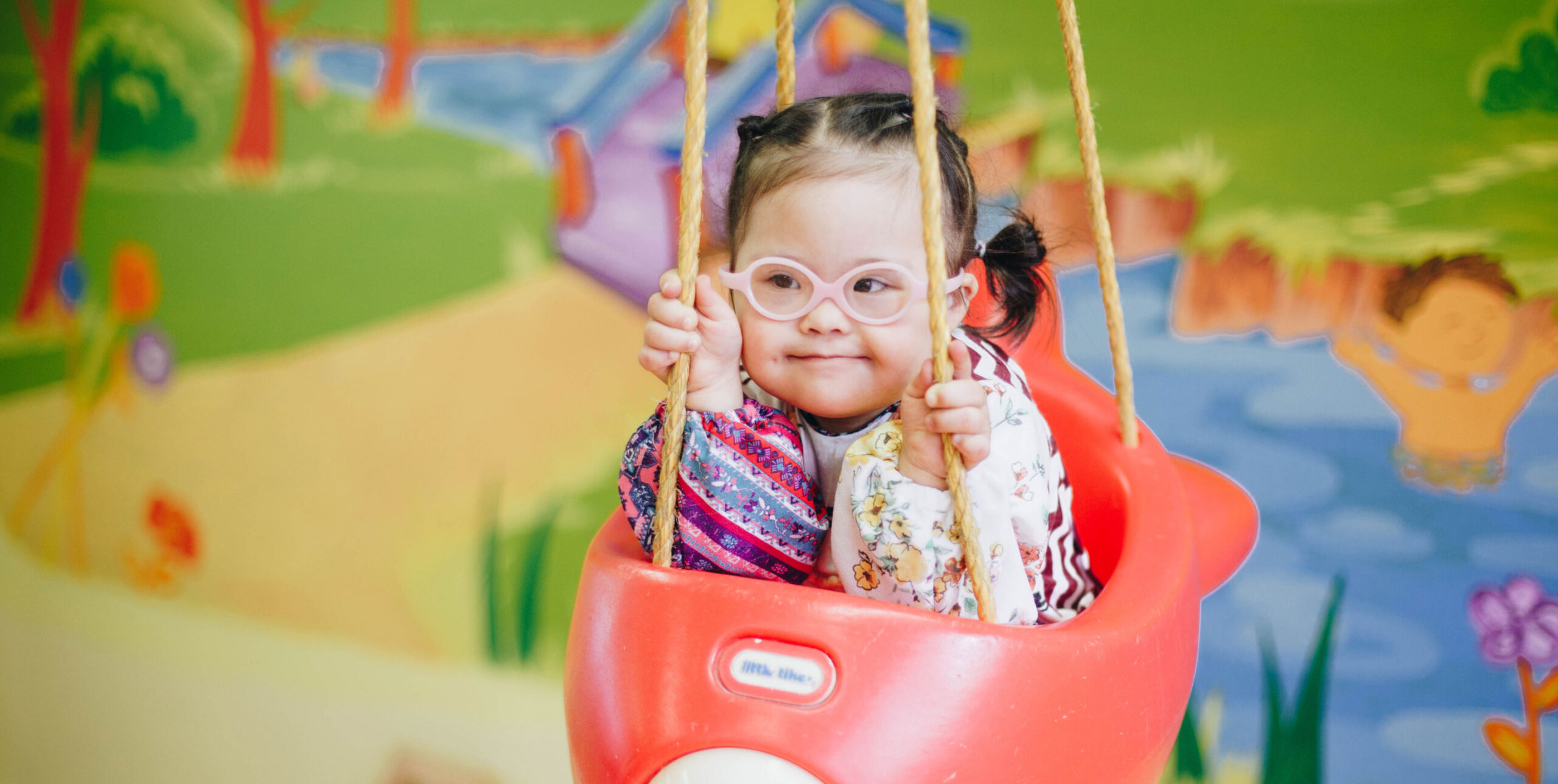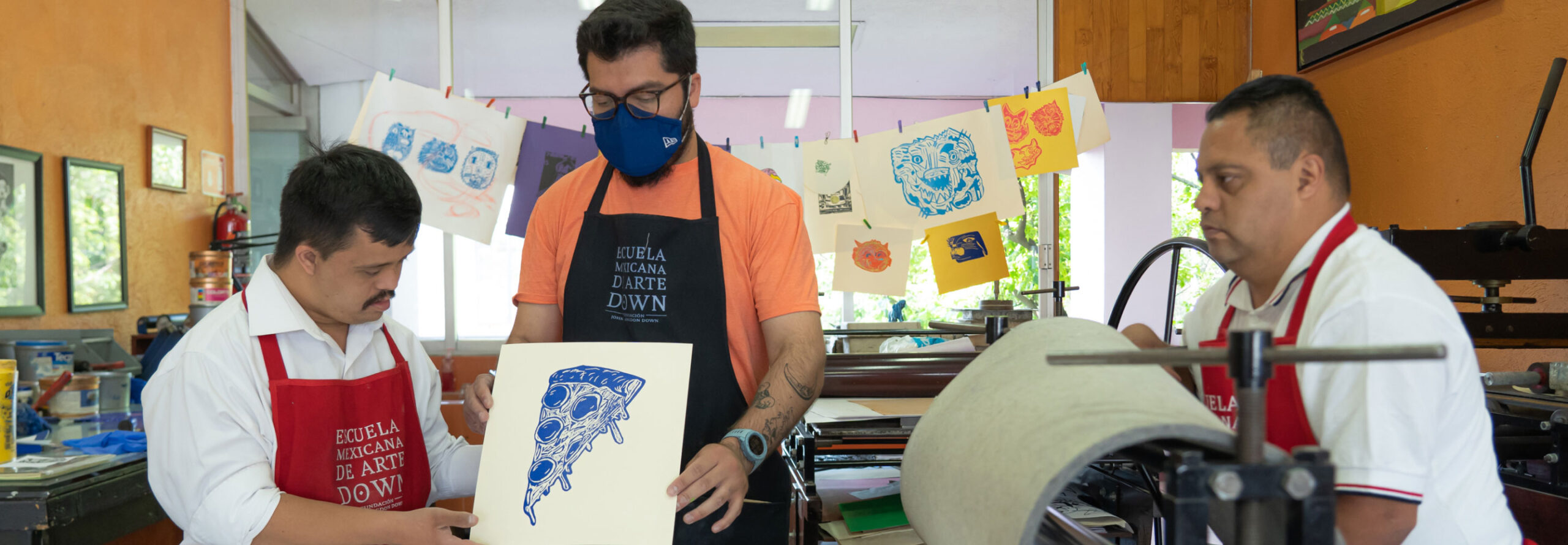Areas of Impact
While we provide technical fundraising and grant-making support in a broad diversity of meaningful areas, our strategic programmatic leadership focuses on several core, interconnected areas of impact and key initiatives.
Environmental justice is the fair treatment and meaningful involvement of all people, regardless of race, ethnicity, income, or background, in the development, implementation, and enforcement of environmental laws, regulations, and policies. It seeks to ensure that no group bears a disproportionate share of environmental burdens, such as pollution, hazardous waste, or climate change impacts, while also ensuring equal access to environmental benefits like clean air, safe drinking water, and green spaces.
Supporting partners and communities to be better equipped to adapt to the changing climate and to bounce back from environmental shocks is central across all ICF programs/impact areas. We champion healthy oceans, ambitious climate solutions, thriving communities, circular economies, and meaningful scientific discovery.
How Environmental Justice Strengthens Climate Resilience
Climate resilience refers to a community’s ability to prepare for, withstand, and recover from climate-related events like extreme weather, rising sea levels, and heatwaves. Environmental justice strengthens climate resilience in several key ways:
- Reducing Vulnerabilities – Many low-income and marginalized communities are more exposed to climate risks due to factors like poor infrastructure, lack of recreational and green spaces, and proximity to industrial pollution. Environmental justice initiatives address these inequities by advocating for sustainable infrastructure, improved housing, and disaster preparedness.
- Equitable Resource Distribution – Climate resilience strategies often require investments in clean water and energy, flood defenses, and emergency services. Environmental justice ensures that these resources are distributed fairly, prioritizing the communities most at risk.
- Community-Led Adaptation – Empowering local communities to participate in climate planning leads to more effective and culturally relevant solutions. Community-driven approaches ensure that resilience strategies meet the specific needs of those affected.
- Health and Well-being Protection – Climate change exacerbates health disparities, with rising temperatures worsening air pollution and increasing the spread of diseases. Environmental justice policies promote access to healthcare, clean air, and cooling infrastructure to protect vulnerable populations.
- Policy and Advocacy for Systemic Change – Strengthening climate resilience requires addressing the root causes of environmental injustice, such as discriminatory zoning laws and unequal access to public services. Many marginalized communities in Mexico and Latin America have lost stewardship of culturally and environmentally significant land. Advocating for strong climate policies that center on justice ensures long-term, sustainable resilience.
Extreme weather events and climate fluctuations such as earthquakes, hurricanes, droughts, flooding, and rising sea levels are increasingly threatening the homes, livelihoods, and safety of communities in Mexico and Latin America. This coupled with existing socio-economic vulnerabilities in these regions, underscores the urgent need for adaptive, innovative, and holistic solutions. We don’t have to choose economy over environment.
ICF is dedicated to partnering with nonprofits and community leaders to uphold their rights and access to clean air, water, and healthy, livable environments. We are investing in, uniting, and building the capacity of these partners to: mitigate environmental imbalances and harm, develop and enforce environmental regulation, policies and zoning, and strengthen meaningful community involvement in urban and territorial planning and decision-making. Our multifaceted approach includes responding to and mitigating the immediate impacts of climate change while investing in the regional and cross-border collaboration, policy reform, infrastructural improvements, education, job creation, research, innovation, and adaptation needed for long-term resilience.
The International Community Foundation has been committed to supporting communities and organizations on the ground in response to natural disasters in Mexico, ensuring that relief efforts are equitable and sustainable. In alignment with our dedication to environmental justice and climate resilience, we have provided emergency relief funds for Hurricane Irma and the devastating earthquakes that struck Mexico in 2017. Our continued efforts focus on empowering vulnerable communities, strengthening disaster preparedness, and fostering long-term recovery to build resilience against future climate-related challenges. By addressing environmental injustices, communities can build stronger, more adaptable systems that protect all people from climate change's impacts. When resilience efforts are guided by principles of equity and inclusion, they create sustainable solutions that benefit both the environment and society as a whole.
Ocean Health
The health of our oceans and coasts is increasingly threatened by overfishing, habitat destruction, climate impacts and pollution. This reality is particularly evident in the Gulf of California, the Meso-American Reef, and the Eastern Tropics, where ICF currently focuses.
We support community partners who are: safeguarding high-priority coastal and marine ecosystems, enhancing clean water access, promoting sustainable coastal land management, centering community leadership and involvement in environmental efforts, and promoting equitable and sustainable fishing practices.
Circular Economies
As development and population growth accelerate in Mexico and Latin America, waste management systems are being stretched beyond capacity. Trash is increasingly being burned to create additional space in dumps or landfills or is swirled into watersheds and flooded into the ocean.
For the last several years, we have been working with partners to collectively shift the way communities think about and manage “trash,” toward systems that values “waste” as a resource. Our approach includes a combination of research, grantmaking, capacity building, and business development to advance a more “circular” and regional approach to reducing and re-purposing waste.
Our partners are promoting the regeneration of soils with composted organic waste, encouraging waste reduction via community engagement and public policy reform, and helping to build and strengthen business transforming waste into construction materials, energy and other resources.
How We're Making a Difference in the Environment Through Disaster Relief and Climate Resilience
Through our Disaster Relief & Environment Funds for Mexico and Latin America, the International Community Foundation is helping communities better prepare for and respond to natural disasters. We swiftly mobilize resources and coordinate support in response to natural disasters and emergencies in the regions where we work. We are committed to the safety and wellbeing of our partner communities before, during, and following emergencies and natural disasters. In addition to activating support for immediate emergency response, we support partners and communities to build resilience and preparation for and responding to natural disasters and emergencies. This work promotes environmental justice by addressing systemic inequalities that leave marginalized communities more exposed to disasters, ensuring equitable access to resources, and empowering local organizations to lead recovery and resilience efforts.
Protect the EnvironmentWe stand beside courageous organizations and movement builders who are safeguarding universal human rights and championing the dignity and worth of all. Together, we strive to improve social and economic stability, and the individual well-being and development, of people on the move and communities facing migration pressures in Central America.
Climate Migration & Building Resilience at Home
Migration and forced displacement from Central America are not only being fueled by extreme poverty, economic stagnation, political repression, and fear of violence, but are increasingly being compounded by changes in climate and extreme weather events. This displacement disproportionately affects marginalized communities, disrupts local economies, and exacerbates existing social tensions and inequalities. We want people to be able to safely migrate and/or safely stay if they choose.
We seek to mitigate the root causes of forced migration, particularly related to climate changes and lack of economic opportunity, by investing in economic development, resilient food and agriculture systems, stewardship of natural resources, education and health of communities in Guatemala, El Salvador, Honduras, and Nicaragua, and Costa Rica.
Our approach, rooted in equity and regeneration, combines grantmaking, capacity building and collaborative learning to strengthen local communities' ability to respond, adapt and implement solutions to complex challenges more effectively.
Dignity & Rights at the US-Mexico Border
Our proximity to the San Diego-Tijuana border has given us intimate insight into the complex challenges facing the border region. Addressing the needs of the vast diversity of migrants, asylum seekers, and refugees involves an integrated combination of immediate humanitarian action, long-term policy reforms and structural improvements.
We are committed to ensuring migrants are treated with dignity and respect as they seek protection of their human rights, safety, and a better quality of life. Our partners, including local shelters, legal service organizations, and health providers, are addressing the urgent and critical needs of thousands of displaced people who arrive at the US-Mexico border each year.
Our approach centers supporting and ecosystem of civil society organizations and community partners to work together, design long-term solutions, mobilize resources, amplify their advocacy efforts, strengthen their intuitional capacity, and tend to their own mental health as well as their beneficiaries.
Support Human Rights & Migration EffortsWe are catalyzing movements and standing with nonprofit and community leaders cultivating healthier, more just, and sustainable regional food systems.
Understanding Food Justice Through Sustainable Food Systems
Disasters have a profound impact on food security, disrupting food production, supply chains, and access to nutritious food, particularly for vulnerable communities. Natural disasters such as hurricanes, droughts, floods, and wildfires can destroy crops, kill livestock, and deplete soil health, reducing food availability. Damage to infrastructure, including roads, storage facilities, and markets, further disrupts distribution, leading to food shortages and price increases. Additionally, water scarcity and contamination hinder agricultural productivity, while economic hardships caused by disasters make it difficult for families to afford food, increasing hunger and malnutrition. In the long term, environmental degradation from repeated disasters weakens agricultural resilience, making food insecurity a persistent challenge. Strengthening climate-resilient agriculture, local food systems, and equitable food aid distribution is essential to mitigating these impacts.
What is Food Justice & Security?
Food has a unique ability to nourish and connect us as families and communities, yet around the world, climate extremes, conflict, and economic shocks continue to intensify food insecurity and malnutrition. According to the World Health Organization, an estimated 600 million – almost 1 in 10 people in the world – fall ill after eating contaminated food and 420 000 die every year, resulting in the loss of 33 million healthy life years.
We are committed to supporting regional efforts that nourish healthy and resilient communities via increasing equitable access to non-contaminated nutritious, culturally appropriate food, boosting economic and social mobility, and strengthen the social fabric that brings communities together.
We invest in, support the capacity of, and connect partners for peer-to-peer learning, who are cultivating community gardens, leading nutrition and wellness programs, recovering food that would have otherwise been wasted, providing nourishing warm meals to those who need it most, and activating food relief during times of emergency.
Regenerative Agriculture & Regional Foodsheds
The decisions we collectively make about food impact societal health and wellbeing, economic stability, and natural ecosystems. We believe in the power of regional regenerative movements to cultivate climate resilience, protect our shared water futures, celebrate healthy food and the people who produce it, promote economic stability, and weave solidary across the food system.
Our regional food system approach in the Baja Peninsula, Mexico and Central America is grounded in research, community engagement, alliance building, and a diversity of grantmaking, financing and capacity building tools. Our partners, including nonprofits, farmers, business owners and community leaders strive to; regenerate healthy soils, nurture biodiversity and steward limited water resources, prevent and reduce food waste and loss, and increase the viability of small- and mid-scale producers and local food business.
Support Food Systems Initiatives TodayQuality education is a fundamental human right and a cornerstone of sustainable development. It empowers individuals with knowledge, skills, and opportunities necessary to break the cycle of poverty, contribute to their communities, and achieve their full potential. However, access to quality education remains a significant challenge globally, including in Mexico, where disparities in educational opportunities persist, particularly among marginalized and underserved populations.
Factors such as economic inequality, geographic isolation, and cultural barriers contribute to the lack of access to quality education. Many who live in rural areas and indigenous communities face inadequate school infrastructure, shortage of qualified teachers, and limited educational resources. This disparity perpetuates socio-economic inequalities and hinders the country's progress towards achieving inclusive and equitable education for all.
The International Community Foundation (ICF) plays a crucial role in promoting educational equity and access for all youth and adults. By collaborating with organizations, ICF supports initiatives that bridge educational gaps. We partner with groups championing access to quality, relevant education for everyone, believing in the power of education as a powerful equalizer and driver of development.
The Importance of Access to Quality Education in Latin America
Even before the devastating impacts of the COVID-19 pandemic on regional education outcomes, access to quality education has been an on-going challenge in Latin America. Latin America is falling behind other regions of the world in terms of years of schooling and quality of education. In 2015, Latin America was on average 2.5 years behind the OECD average in years of schooling. Structural inequalities, outdated teaching methods, lack of materials and physical conditions, unaccommodating single-language instruction, and many other obstacles lead to low learning outcomes that prevent the full development of millions of young people.
92% of Latin American children begin primary school, but only 41% of Brazilians and 35% of Mexicans graduate from secondary school (the U.S. equivalent of middle/high school). These challenges contribute to cycles of poverty and inequality, making it harder for individuals to secure stable employment and improve their quality of life. Quality education is essential for economic and social development, as it equips people with the skills needed for a competitive workforce, fosters innovation, and promotes social mobility. Investing in equitable, high-quality education is key to reducing inequality, strengthening economies, and building more inclusive societies across the region. We seek to disrupt this pattern by strengthening and expanding educational programs that empower individuals and communities to reach their full potential.
Our local partners are providing relevant, quality curriculums both in and out of public-school systems; they are investing in teachers and infrastructure; and ensuring equitable access across gender identities, ethnicities, and socioeconomic groups through scholarships, mentoring, and direct education services such as digital classrooms, mobile libraries, extracurricular programs and wraparound services for children and their families.
STEAM Education
STEAM Education is an approach to learning that uses Science, Technology, Engineering, the Arts and Mathematics as access points for guiding student inquiry, dialogue, and critical thinking. We recognize that future economic prosperity lies in a workforce that is well-versed in rising job markets like science, technology, engineering, and math.
As a complement to basic education, and with appropriate mentorship, STEAM curriculums can prepare students to be thoughtful risk-takers, adept problem solvers, and collaborative individuals who can contribute to the workforce and society in meaningful ways.
We are committed to identifying relevant STEAM curriculums and promoting STEAM education early and consistently to all school-age students. Evidence shows that building these skillsets from a young age is particularly important for children from underserved or marginalized communities who have limited access to digital tools, adult mentorship, and job opportunities.
Workforce Development and Employability
Low investments in education means that societies in Latin America face persistent underemployment and skills gaps in the job market. This perpetuates and exacerbates other social issues including poverty, chronic health conditions, violence, and corruption.
Beyond traditional classroom settings, we are committed to connecting youth and adults to programs that build the skills essential for individuals to successfully navigate the labor market, find suitable employment, and advance in their careers.
Our local partners are offering diverse interventions that reduce skills gaps and increase economic opportunity including workforce development and language programs for migrants and refugees, primary and secondary curriculums focused on career development and socioemotional skills, scholarships for higher education or vocational training, and several leadership and mentorship programs.
Building Inclusive Education Systems
Creating inclusive education systems that cater to all individuals, including those with disabilities and from marginalized communities, is not just a moral imperative but a critical step towards achieving sustainable development and social justice. Inclusive education ensures that every child, regardless of background or ability, has equal access to quality education and opportunities for personal growth and success.
In Latin America, those with disabilities and from marginalized communities often face significant barriers to accessing education. These barriers can include physical accessibility issues, discrimination, lack of trained teachers, and inadequate resources tailored to their needs. Addressing these challenges requires a concerted effort to build inclusive education systems that prioritize diversity, equity, and inclusion.
Support Our Education Initiatives in Latin America
Join us in transforming lives through education! Your donation to ICF’s education funds helps provide quality learning opportunities, bridge educational gaps, and empower students with the tools they need to build a brighter future. Together, we can create lasting change and ensure that every child and adult has access to the education they deserve—donate today!
Support Education InitiativesWe partner with nonprofit health care providers, advocates, and researchers, to raise awareness and increase access to affordable, inclusive, and quality health services.
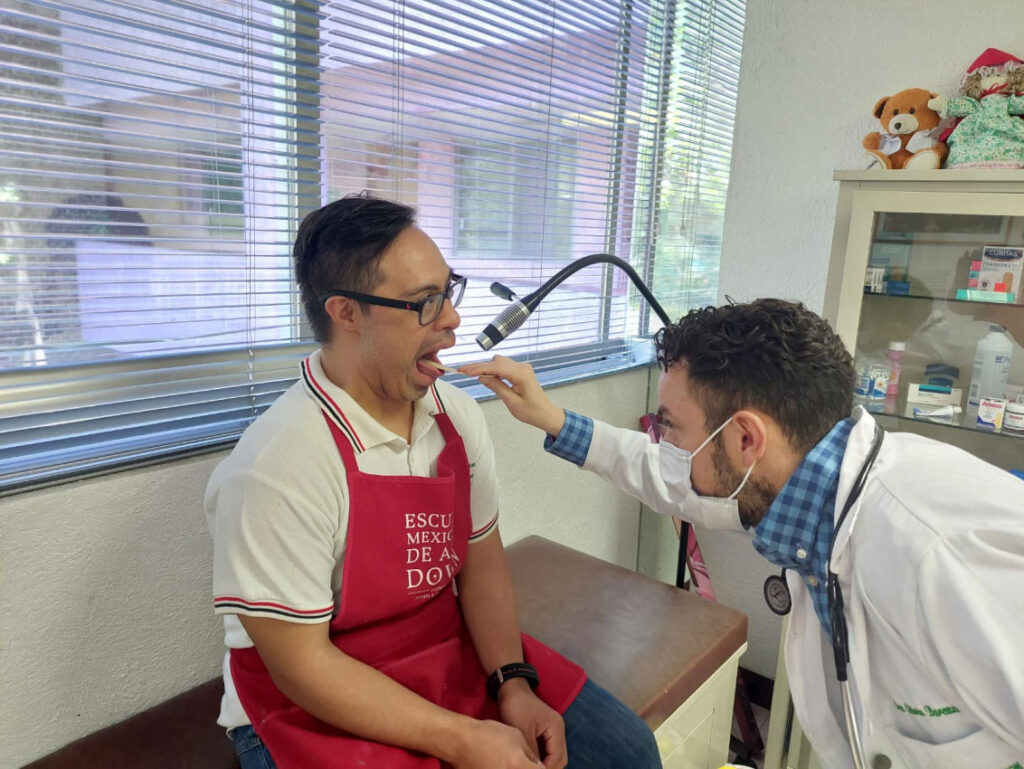
Many underserved and marginalized populations lack access to essential healthcare services. As a result, we continue to work with health-related organizations to bridge this gap and provide services, information, and resources to those who might otherwise go without proper medical attention.
We are committed to supporting community wellbeing through advocacy and access to high-quality health services for underserved populations, particularly children, women, and migrant populations. We partner with locally based organizations across Mexico and Latin America to raise awareness and ensure access to quality, holistic health services for all. We firmly believe that access to mental health support is a fundamental human right and essential for a resilient society. We understand that marginalized populations face unique challenges and seek to offer inclusive and culturally sensitive programs to ensure everyone receives the help they need.
Our local partners are providing accessible preventative health and specialized treatments including holistic wellness support for low-income communities; mental health support and trauma-informed care; research, prevention, and data analysis services; and inclusive, high-quality reproductive health services and advocacy.
Help Save LivesWe believe that investing in cultural preservation of knowledge, spaces, traditions, languages, and practices by promoting expression through the arts is essential to a stable, peaceful society and improved quality of life for present and future generations.
Our Arts & Culture portfolio has supported diverse projects such as the restoration of historical monuments, incubation of cultural heritage museums, and public art installations. Additionally, we provide long-term operational support for small galleries and renowned museums in Mexico and have supported dozens of artistic opportunities for children and youth who otherwise may not have access through scholarships for music, dance and fine arts, as well as extracurricular and in-school arts education programs.
Help to Preserve Art and Culture
